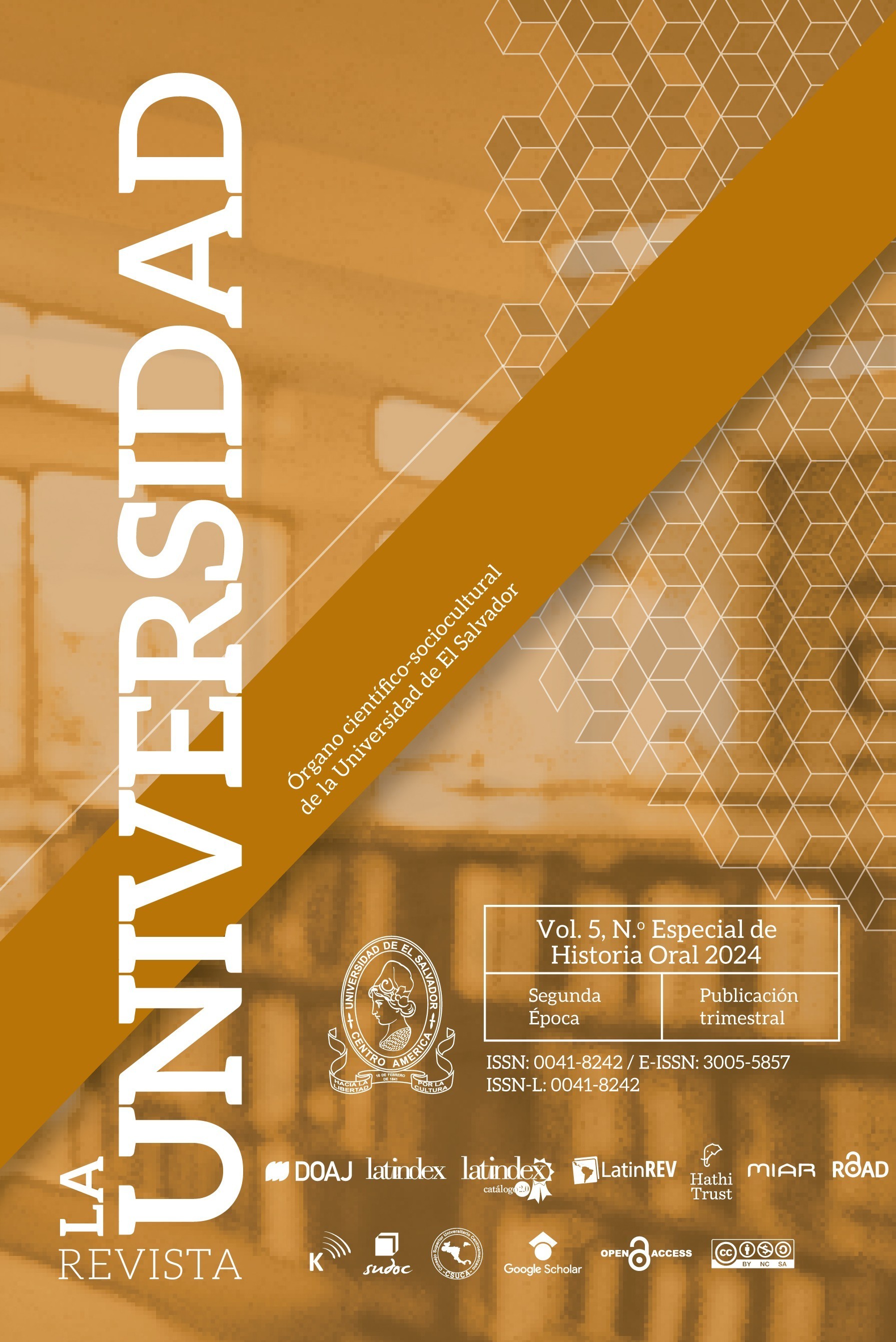Between threads, needles and exploitation: situation of unions and organization of textile workers without union support in El Salvador 2000 – 2015
DOI:
https://doi.org/10.5281/Keywords:
maquilas, memory, oral history, textile workers, unions, working conditionsAbstract
At the end of the 20th century, the “Law on Industrial and Marketing Free Zones” (1998) was issued, with the purpose of promoting national and international investment and allowing the country to participate in the globalization process. Thanks to this law, the free zones and maquilas began to operate with notable permissibility in the payment of taxes and in the conditions for their workers. However, these facilities provided by the State gave rise to the existence and affirmation of precarious conditions for maquila workers in particular –long hours, sexual harassment and verbal abuse from superiors, excessive work goals, very poor payments, etc.–
Faced with this situation, unions, far from responding to their original purpose – fighting for better working conditions and treatment –tended to respond to the political and economic interests of third parties. In specific situations, the workers demonstrated without union support, since this did not contribute to the resolution of their labor problems. The actions taken were to exert pressure by paralyzing production peacefully, arriving and not working or aggressively taking over the company, damage to machines, riots.
Downloads
References
Carpio, Salvador Cayetano. Sindicalismo Revolucionario. San Salvador, 1971.
Escobar, Carmen Valeria. GatoEncerrado.2020. https://desinformemonos.org/un-centenar-de-trabajadoras-toma-una-maquila-en-el-salvador-y-la-convierte-en-un-espacio-feminista/(último acceso: 20 de junio de 2021).
López Bernal, Carlos Gregorio. «Historiografía y movimientos sociales en El Salvador (1811 - 1932): un balance preliminar.» Revista de Historia, N.º 67 (enero - junio, 2013): 89 - 119.
Marvin Díaz, Krissia Girón, Clanci Rosa y Mario Beltrán. Gato Encerrado. s.f. https://www.connectas.org./especiales/maquilas-el-salvador/ (último acceso: 20 de junio de 2021).
Melucci, Alberto. Acción colectiva, vida cotidiana y democracia. México: Colegio de México, 1999.
Menjívar Larín, Rafael. «Formación y lucha del proletariado industrial salvadoreño». En Julio nunca más... Obra escogida de Rafael Menjívar Larín, 139 - 176. San José: FLACSO, 2010.
Muñoz, María Antonieta Monserrat Vera. «Caracterización de los trabajadores de las empresas maquiladoras localizadas en Tehuacán Puebla, México». Revista Internacional Administración & Finanzas 6, N.º 5 (2013): 95 - 107.
Resolución 775- 2016 (Sala de lo Constitucional de la Corte Suprema de Justicia, 24 de abril de 2017).
Entrevista a Karla Menjívar. Historia de vida en las maquilas (1 de mayo de 2020).
Entrevista a R, E. Sobre la organización para exigir indemnizaciones (16 de mayo de 2020).
Entrevista a Walter Serrano. Sobre el abordaje sindical desde los jefes de maquila (23 de noviembre de 2021).
Downloads
Published
Issue
Section
License
Copyright (c) 2024 Authors who publish in Revista La Universidad agree to the following terms: Authors continue as owners of their works, non-exclusively assigning dissemination rights to La Universidad Journal under the standards of the Attribution-NonCommercial-ShareAlike License: CC BY-NC-SA 4.0. This license allows the use of a work to create another work or content, modifying or not the original work, as long as the author is cited, the resulting work is shared under the same type of license and has no commercial purposes(https://creativecommons.org/licenses/by-nc-sa/4.0/deed.es).

This work is licensed under a Creative Commons Attribution-NonCommercial-ShareAlike 4.0 International License.





